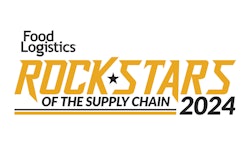
In 2023, the global demand for enhanced environmental, social, and governance (ESG) disclosure was intense, and 2024 is projected to follow suit. With the adoption of California’s climate-related disclosure laws and the European Corporate Sustainability Reporting Directive (CSRD), there’s significant momentum from regulatory bodies working to mandate sustainability disclosure, which can only be expected to continue into 2024 as they work to pass national requirements in the United States.
Many pieces of legislation currently being considered have significant implications for supply chain leaders in the food and beverage space. For example, the U.S. Securities and Exchange Commission’s (SEC) proposed Climate-Related Disclosure rules may require that US publicly traded companies annually report their methods for assessing, measuring, and managing climate-related risks. A primary concern for companies is the mandate may also require companies to disclose Scope 3 emissions, which are emissions that may not be produced by the company itself but affect the organization’s value chain, including suppliers, customers, and employees. As a result, supply chain leaders will need to track and report all upstream and downstream activities, such as raw materials and distribution emissions.
The integration of ESG considerations into supply chain management is no longer a choice; it is a strategic imperative dictated by regulatory pressures and the evolving expectations of investors, consumers, and the broader market. This is especially true for the food and beverage industry, as it is highly dependent on natural resources and has a massive impact on our environment. In fact, food production accounts for over a quarter of global greenhouse gas emissions. To meet regulatory requirements as well as mounting pressures from stakeholders and consumers, food and beverage supply chain leaders must consider the impact of their value chain and work to balance profitability with sustainability.
To best prepare, supply chain leaders should consider the following strategies and tips to help navigate ESG in terms of supply chain management.
Optimize data collection
Data is paramount to remaining in compliance with the upcoming regulations especially as investors and stakeholders are increasingly considering ESG factors when making decisions. ESG reporting relies on providing transparent and accurate information about a company's sustainability initiatives and emissions, but collecting and analyzing data from an organization’s entire value chain can be incredibly complex and time-consuming. Automating data collection can streamline the reporting process while ensuring that the disclosed numbers are audit-ready and investor-grade. Reliable and comprehensive data in ESG reports builds confidence among investors and stakeholders by demonstrating that a company is actively managing and reporting on its sustainability efforts.
Harnessing data analytics allows organizations to gain insights into their supply chain operations. By analyzing data, companies can identify inefficiencies, optimize processes, and make informed decisions that align with ESG goals. It can also aid in risk management, allowing companies to proactively address vulnerabilities in their supply chains, workforce practices, or governance structures, reducing the likelihood of negative impacts on their operations and reputation. In the food and beverage sector, utilizing predictive analytics using historical sales data or market trends for accurate demand forecasting can help optimize production schedules, minimize waste, and reduce the carbon footprint associated with overproduction.
Adopt sustainable products and packaging
Adopting sustainable products and packaging not only addresses regulatory compliance but also resonates with environmentally conscious consumers, fostering brand loyalty and positive public perception. A large number of consumers rely on packaging to vet companies for greenwashing, with 72% using labels or third-party certifications to confirm a company or product’s sustainability credentials. In addition to regulatory pressures, shifting consumer trends are another incentive for company leaders to adopt sustainable practices and products. In fact, nearly three-fourths of consumers agree climate events from the past year have made them more likely to seek out sustainable products, and 66% of U.S. consumers are willing to pay more for sustainable products.
Food and beverage supply chains need to embrace sustainable practices from end-to-end and show consumers true commitment to ESG goals. Ethical sourcing, regenerative agriculture, and supply chain transparency should be key considerations for the food and beverage and CPG industries. Supply chain leaders should consider using products that can be repaired, reused, or refurbished at the end of their life. For example, equipment designed with modular components can be more easily repaired and upgraded. Instead of replacing entire machines, companies can replace or repair specific components, extending the lifespan of the equipment and reducing the overall environmental impact.
Eco-friendly packaging is another area that is trending toward green alternatives and can be a great way to reflect a company’s commitment to reducing the environmental impact of operations. A few examples include waste reduction, alternatives for non-biodegradable plastic, packaging that can be repurposed, compostable packaging, and packaging that reduces emissions in transit.
Consider your supplier network
Expanding supplier diversity to support sustainability can be a strategic approach for food and beverage companies to mitigate the risks of materials shortages and logistical disruptions in their supply chains. If companies are required to report Scope 3 emissions, they will be required to report supplier activities, so collaborating with a supplier network that adheres to eco-friendly practices helps companies reduce their overall environmental footprint and reduce any delays. Supplier diversity demonstrates a clear commitment to social responsibility and can help gain a competitive advantage. Also, cultivating relationships with a range of suppliers fosters long-term partnerships, encouraging knowledge-sharing, joint problem-solving, and mutual growth. In the context of sustainability, it enables continuous improvement and the collective pursuit of more environmentally and socially responsible practices. Relying on a diverse supplier base can also enhance supply chain resilience. Diversification minimizes the risks associated with dependence on a single source, making the supply chain more adaptable to disruptions and better able to navigate challenges such as natural disasters or global economic changes.
As ESG considerations continue to shape the business landscape, supply chain management must also continue to evolve and embrace new strategies and tools. Embracing sustainable practices is not just a regulatory necessity but a strategic imperative for long-term success, especially for the food and beverage industry. Organizations that proactively align their supply chain initiatives with ESG principles not only mitigate risks but also position themselves for success in a world increasingly focused on sustainable and responsible business practices. Adopting sustainable business practices and improving ESG reporting puts your company in good standing with investors, regulatory bodies, and environmentally conscious consumers.
By embracing the green frontier, food and beverage businesses can forge a path toward a more equitable, environmentally conscious, and resilient future.
















